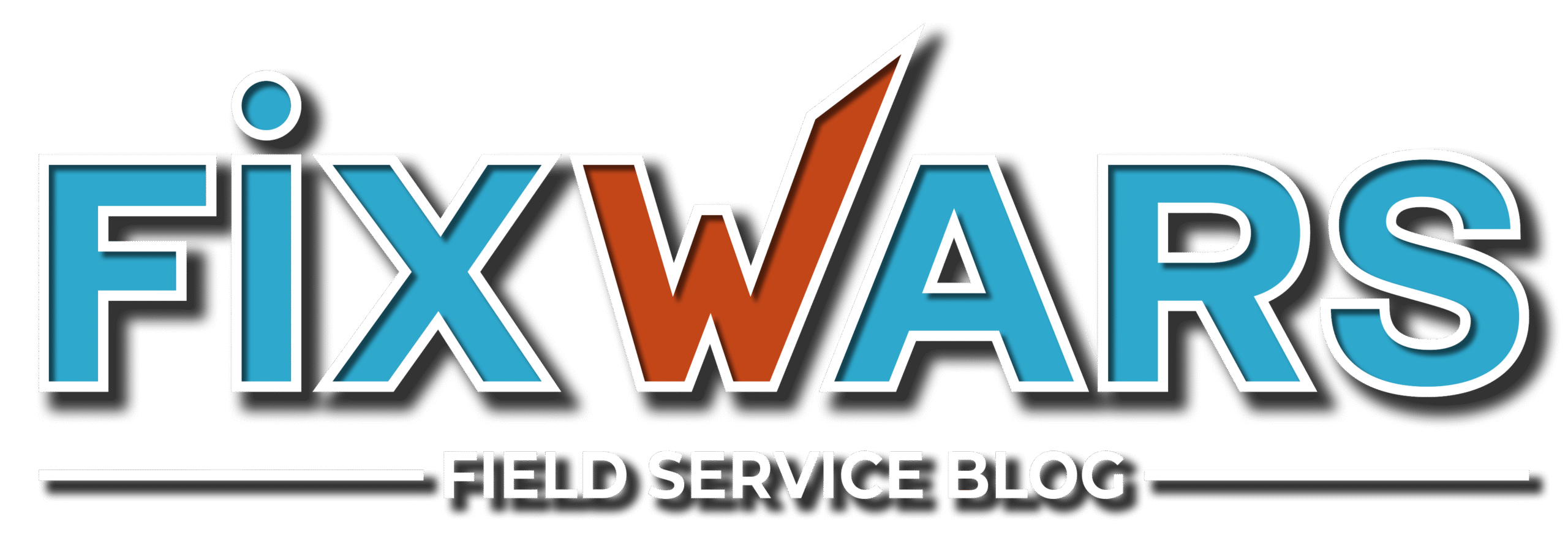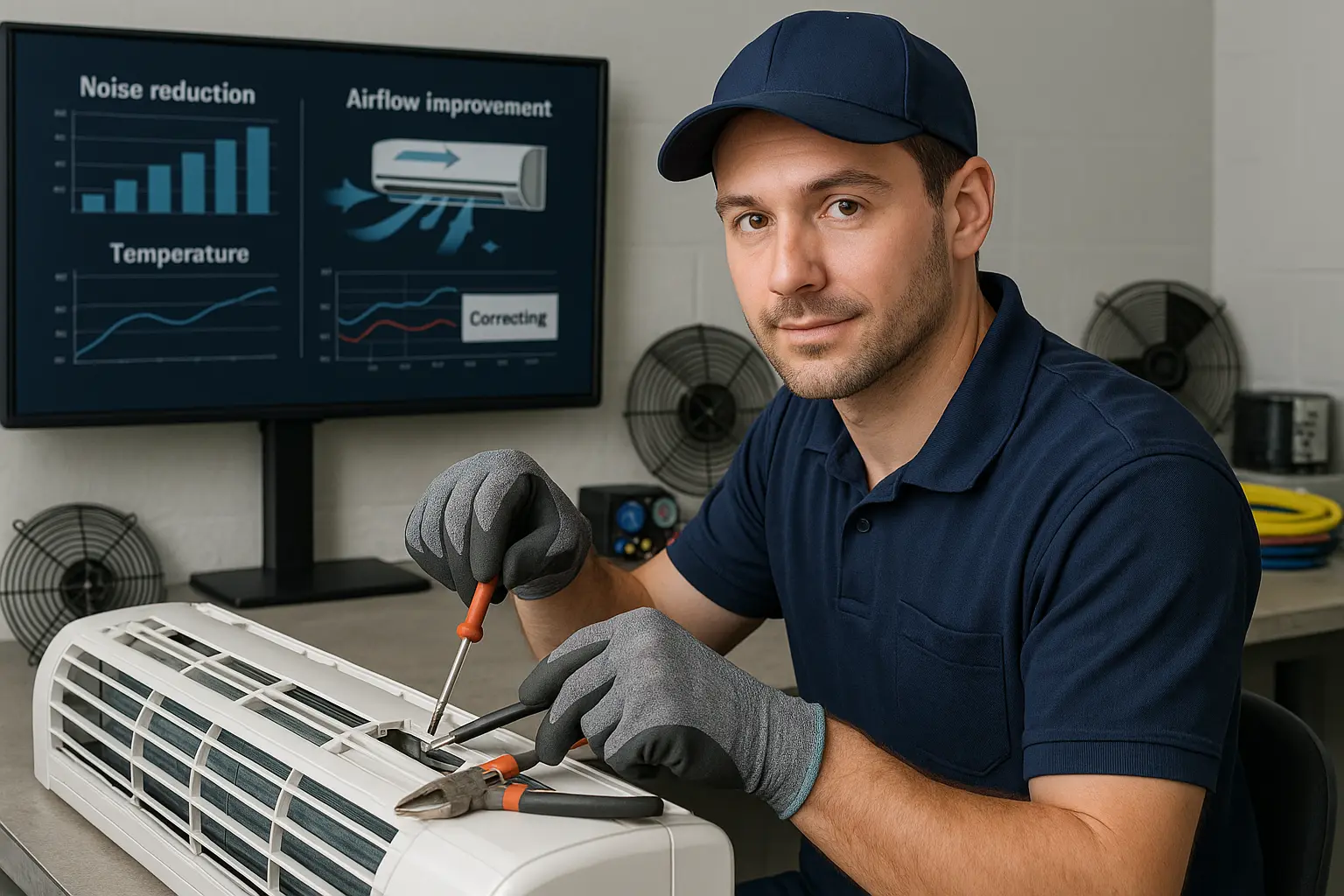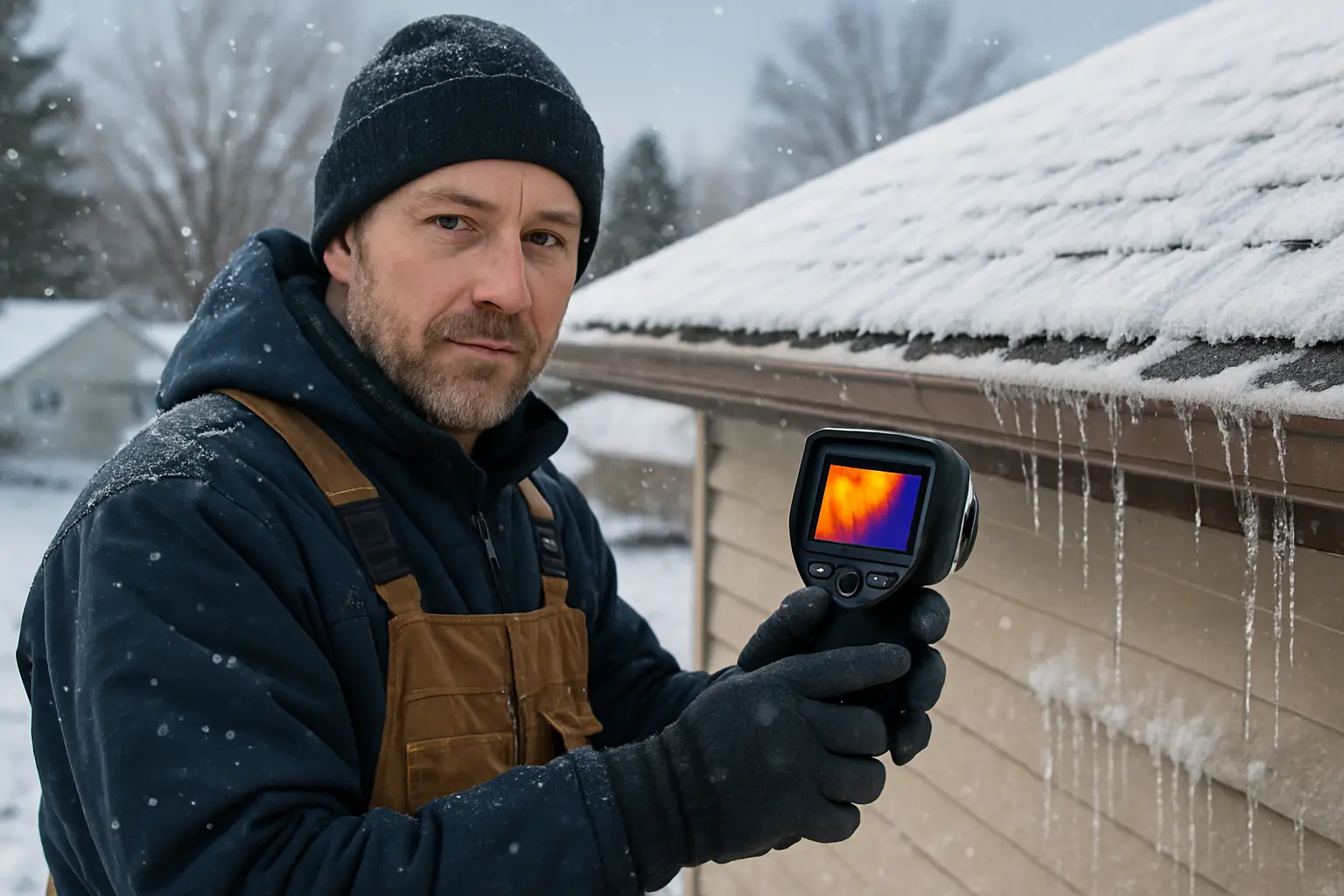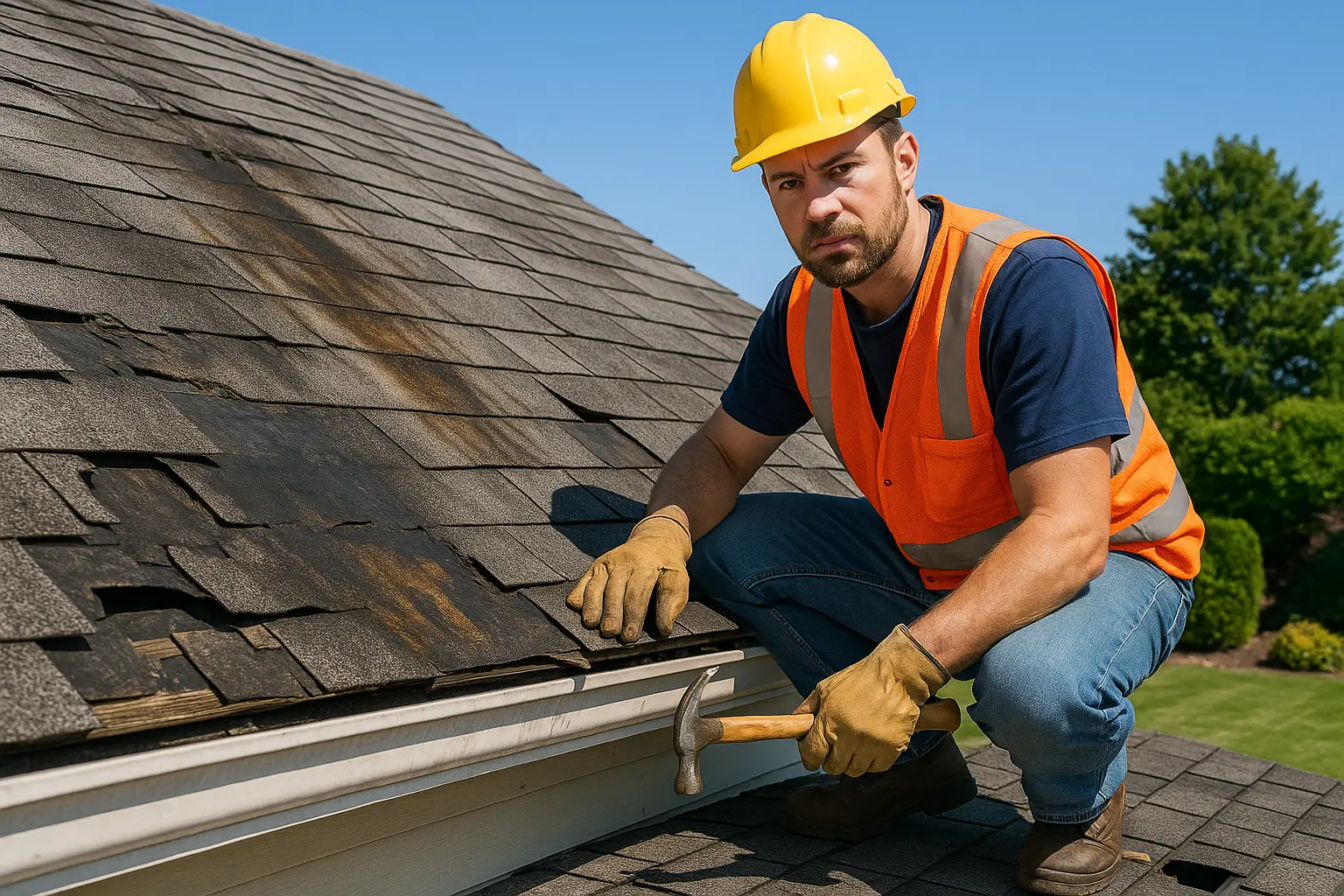Cooling System Warnings: Identifying AC Repair Needs
Your air conditioner should create a pleasant, cool environment all year round. When you notice that cool air is replaced by unexpected warm air, it’s a hint that your unit may be acting up. If some rooms keep feeling hotter than others, it might be due to blocked vents, faulty ductwork, or a misbehaving thermostat. For example, clogged vents can limit the flow of cold air, while problems in the duct system—like leaks or disconnected sections—can cause your cooling to vanish before it reaches every room. Keeping an eye out for these Cooling System Warnings can help you pinpoint where the trouble lies early on.
Imagine living in a multi-level home where the upstairs consistently feels warmer than the ground floor. This situation might mean that your air ducts are either leaking or simply not built to handle the job properly. Additionally, if your thermostat sends mixed signals about the temperature, the AC might cycle too often, creating erratic indoor temperatures. Noticing these subtle Cooling System Warnings and other AC repair signs should prompt a professional check-up to keep your home comfortable and energy usage down.
Cooling System Warnings From Unusual Cooling Patterns
Under normal conditions, your cooling system should run quietly with a gentle hum. However, if your unit starts producing strange noises like banging, screeching, or even constant rattling, it might be signaling an underlying problem within the mechanical parts. Loose components, a low-quality motor, or a slipped belt can cause these sounds, and such Cooling System Warnings should not be brushed off lightly. For instance, a persistent rattling noise each time your unit switches on could mean that something in the compressor or fan assembly isn’t securely fastened.
In one scenario, a household experienced continuous clanging, and a technician later discovered that metal brackets had rusted from exposure to moisture. Other times, a high-pitched noise might point to worn-out belts or failing bearings. By heeding these Cooling System Warnings, you can prevent the need for a major overhaul later, reducing repair expenses and extending the life of your system.
Detecting Air Quality Issues Through Odors
An AC is meant to preserve a clean, fresh indoor air quality. If you catch a whiff of something off—whether it resembles musty dampness or a burning smell—it’s a serious sign that your unit needs immediate attention. A musty odor, for instance, might hint at mold buildup due to moist conditions or a poorly draining condensate system. These kinds of Cooling System Warnings often occur alongside bacterial growth in trapped condensate, resulting in persistent bad smells every time the system kicks on.
On the other hand, if you detect a burning odor, it could be a signal of electrical problems or overheating parts. One homeowner once experienced a lingering burning scent later traced to an electrical short happening in the wiring. Recognizing these Cooling System Warnings early can help you protect your indoor air quality and ensure everyone’s safety.
Efficiency and Maintenance Issues
A sudden spike in energy bills might mean your system is working too hard. When you see your costs rising unexpectedly without any changes in usage, it’s time to check if your AC is strained due to dirty coils, clogged filters, or low refrigerant levels. For example, dust and debris in filters force the unit to burn more energy to circulate air, a clear sign that the system is undergoing subtle Cooling System Warnings which may hint at AC repair signs.
Picture receiving a 20% higher monthly bill over a few cycles, only to discover that the filters were choked with grime, compelling the compressor to overexert itself. Regular maintenance—such as cleaning filters every couple of months—can significantly cut down energy usage and prevent these Cooling System Warnings, ultimately saving you money and prolonging the unit’s lifespan.
Short Cycling and Its Impact on Performance
If your AC keeps turning on and off in short bursts, it could be overworking itself to keep your home cool. This phenomenon, known as short cycling, might be caused by thermostat glitches, improper unit sizes for your space, or simply clogged filters. Such erratic behavior is among the most obvious Cooling System Warnings, indicating that the system isn’t operating as it should.
Consider a system that shuts down after only a few minutes and then restarts repeatedly. Such behavior stresses key parts of your AC, like the compressor and fan. It might also be a sign that the unit is too large for the area, cooling it down too quickly and preventing proper moisture removal. Addressing these Cooling System Warnings through proper maintenance or recalibrating the thermostat is crucial in reducing wear and tear on your system.
Aging Equipment and Efficiency Drop
All cooling systems have a lifespan. Most air conditioners are built to last between 10 and 15 years. When your system nears its later years while showing signs of damage like inconsistent cooling or strange sounds, it might be time to consider replacing it instead of repeatedly repairing it. Aging equipment often comes with more frequent Cooling System Warnings that signal reduced efficiency and a tendency to consume more energy.
Older units may have persistent refrigerant leaks, outdated components, or technology that can’t keep up with current energy standards. For instance, a 12-year-old AC might frequently overheat or under-cool despite continuous repairs. By opting for a newer model, you not only enjoy better performance but also benefit from modern energy-saving features that reduce these common Cooling System Warnings and other AC repair signs.
Professional Help and Regular Maintenance
When you catch these Cooling System Warnings early, timely repairs can save you from a cascade of more extensive issues. Ignoring even minor issues, like a small duct leak, can lead to major energy losses and higher repair costs over time. Acting at the first sign of trouble ensures your system remains efficient and your home stays comfortable.
For example, a small misalignment in the fan blade left unchecked could eventually force the entire motor to break down. Regular and prompt service not only tackles these subtle Cooling System Warnings but also helps avoid an overwhelming repair bill later on. Early intervention, in line with recognized AC repair signs, is the key to long-term comfort and cost savings.
Cooling System Warnings When Selecting a Technician
Finding the right HVAC technician is as important as spotting any early Cooling System Warnings yourself. A skilled professional will accurately diagnose the problem and use top-quality parts to set things right. Look for technicians with solid reviews, valid certifications, and clear pricing. Their ability to explain each step of the repair process can boost your trust and help you understand the AC repair signs you might be observing.
Word-of-mouth recommendations and local testimonials are great indicators of someone who values your comfort as much as you do. By opting for a reputable expert, you ensure that any subtle Cooling System Warnings are quickly addressed, securing both your system’s performance and your peace of mind.
Scheduling Routine Maintenance
Regular maintenance isn’t just a good habit; it’s essential for keeping your cooling system in top shape. A routine check-up covers cleaning, testing, and fine-tuning the most critical parts of your AC. This sort of scheduled inspection helps catch potential problems before they turn into major Cooling System Warnings and other clear AC repair signs.
During a typical service visit, a technician might verify refrigerant levels, clean coils, and check that all moving parts are in good condition. Such detailed routine care is vital to ensure unobstructed airflow and keep energy use low. Following a proactive maintenance guide means fewer unexpected breakdowns and a healthier home environment, free from the negative repercussions that often follow prolonged neglect.
Conclusion
Identifying Cooling System Warnings early can make a huge difference in keeping your home comfortable and your energy costs down. From uneven cooling and odd sounds to lingering odors, these signals shouldn’t be taken lightly. Even a small hint, such as a slight increase in your electric bill or intermittent cycling, may be the AC repair signs that you need to act immediately.
By addressing these cues through timely repairs, you help your air conditioner perform at its best, reducing the chance of expensive failures later. Today’s HVAC experts use state-of-the-art methods to diagnose and resolve these issues, ensuring your system runs efficiently with modern energy-saving features. Upgrading old units can often be more cost-effective than repeated fixes, providing better performance and reduced energy use.
The importance of regular professional maintenance cannot be overstated. It not only extends your system’s life but also makes sure every corner of your home enjoys reliable cooling. Recognizing and acting upon these Cooling System Warnings helps prevent the domino effect of neglect that leads to serious repair issues, better known as AC repair signs.
Choosing the right service provider and sticking to a proper maintenance schedule is crucial to address any problem—from blocked vents and refrigerant leaks to mechanical noise and fluctuating temperatures. In the end, this smart, proactive approach leads to long-lasting comfort, lower bills, and a better quality of indoor air. Remember, your AC isn’t just a luxury; it’s a key part of your home’s well-being.





